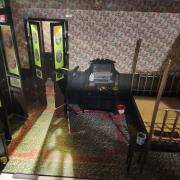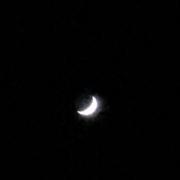
Most people love fireworks, the classic explosions of light, colour and sound, but would you ever consider attending a silent firework event? You may think that the fizzes, pops and bangs that accompany fireworks are all part of the fun, but for some this couldn’t be further from the truth.
Those who are hypersensitive to noise, for example those with autism, bipolar disorder, hyperacusis or other sensory issues find even everyday sounds such as a refrigerator hum seem unbearably loud and painful to the ears. Therefore, fireworks are a horrible experience that many have had to miss out on due to hearing problems, but are silent fireworks the way forward for an inclusive and accessible bonfire night?
Recently, Manchester University encouraged students to replace clapping with ‘jazz hands’ at events, as this is the British Sign Language expression for applause. The reason for this is so as not to trigger anxiety of those with sensitive hearing to make certain events such as debates more inclusive and accessible. Morrisons also recently introduced a ‘quieter hour’ for shoppers in over 400 stores in the United Kingdom, where they will dim lights and limit loud noises such as check-out beeps to be inclusive to those with autism and hearing sensitivity. Asda and The Entertainer also hold quiet shopping hours to prevent stress of sensitive shoppers.
These are examples of similar movements to the inclusive idea of ‘silent fireworks’. The phrase ‘silent fireworks’ is, however, slightly misleading, for the display is not completely silent; the explosions used are much quieter, without the loud bangs that disturb those with auditory sensitivity. Over 700,000 people in the UK suffer with autism, and 1 in 50,000 suffer with hyperacusis, so should we continue to cause unnecessary stress or anxiety resulting from the loud noises in fireworks displays? Are silent firework displays the answer? It’s not just people with auditory issues that are affected by the loud noise; young children, pets and animals can also be sensitive or nervous around loud noises. These displays can still be entertaining and choreographed, with colourful fountains and wheels which are often people’s favourite fireworks! A town in Italy, Collecchio, made a law that firework displays must be silent, in the interests of the livestock, wildlife and pets living there.
Coming up on the 27th October, Godstone Farm are holding a ‘Low Bangs’ Firework Display for those with sensitive ears to enjoy with the rest of the family. When speaking to the manager of this event, she said that ‘our target audience is younger children so we are aiming the event for under 8s’, and that the event has been extremely popular in the past 3 years and is increasingly popular this year.
It is unlikely that silent firework displays will ever replace traditional displays, just as jazz hands will probably not replace clapping. However, they allow us to take a step forward in becoming more inclusive, ensuring everyone can enjoy Bonfire Night without the stress and anxiety caused by auditory sensitivity.



























